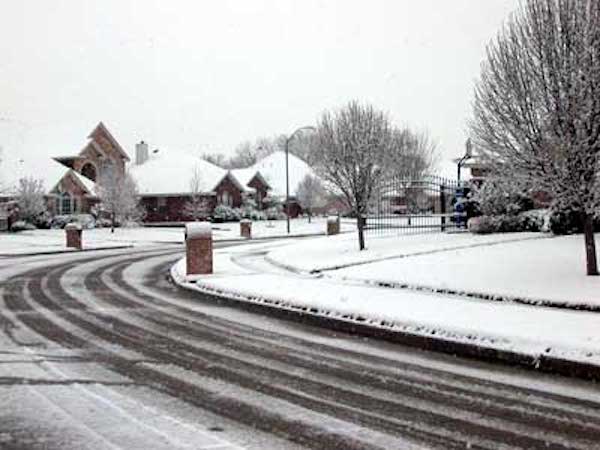Texas digs out from extreme weather event
Published 6:26 am Saturday, February 20, 2021

- Photo courtesy of weather.gov Nearly 3 million Texas households were without heat or electricity this week due to a massive winter storm.
|
Getting your Trinity Audio player ready...
|
By Roz Brown
Texas News Service
AUSTIN, Texas — Most extreme weather events in the U.S. have been on the hotter and wetter side in recent years, including fires and floods. But climate experts say the catastrophic winter storm in Texas is another example of global warming.
Edward Maibach is the director of the Center for Climate Change Communication at George Mason University.
He said climate change is a complicated topic, and not completely understood. And that might explain why the Texas energy grid couldn’t handle demand during this week’s storm.
“Why the public utility operators across Texas weren’t expecting the possibility of a massive cold snap?” asked Maibach. “They just haven’t had time to recognize that as a threat.”
Maibach said it’s believed destabilization of the polar vortex is why we’ve seen such events as a heat wave in Greenland and the severe cold snap across the southern United states.
Amid widespread power losses, millions of Texans have also been advised to boil their water for safety.
Texas is home to much of the U.S. oil and gas industry. At the same time, the state leads the nation in wind-power generation.
Wind turbines that froze were blamed by Gov. Greg Abbott for this week’s massive power outages, although the main problem was stalled natural gas production due to frigid temperatures.
The governor, a long-time backer of the fossil-fuel industry, said it’s an example of how bad the “Green New Deal” would be for the U.S.
Maibach counters that blaming the crisis on clean energy is shortsighted.
“The kind of political theater that we see the governor enacting at the moment,” said Maibach. “I just don’t think it’s going to be politically tenable in a few years, once the clean-energy economy of the state is even further established.”
Maibach added he’s encouraged that President Joe Biden is taking aggressive action on climate change, including rejoining the Paris Agreement and reviewing rollbacks of standards that protect air and water.
Trending





